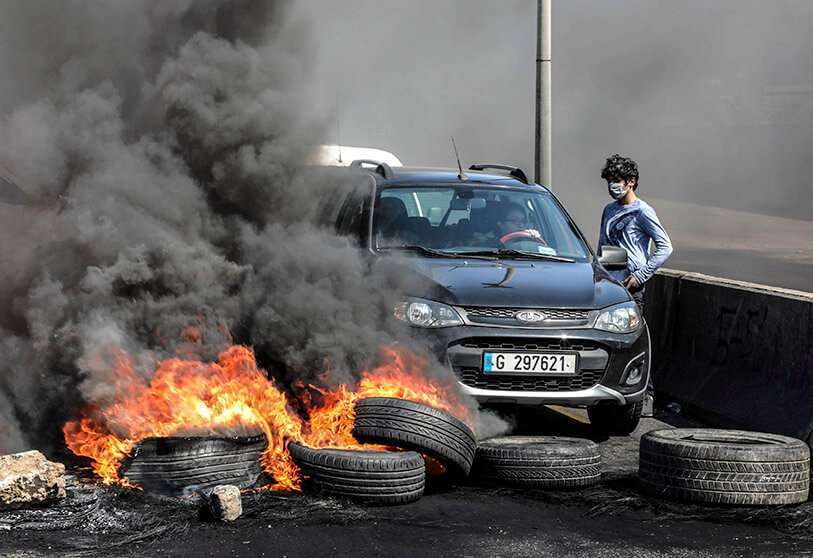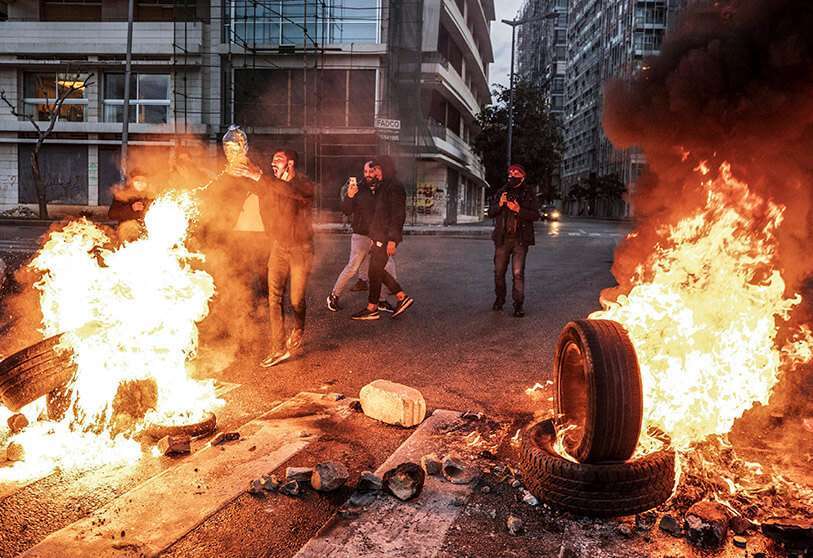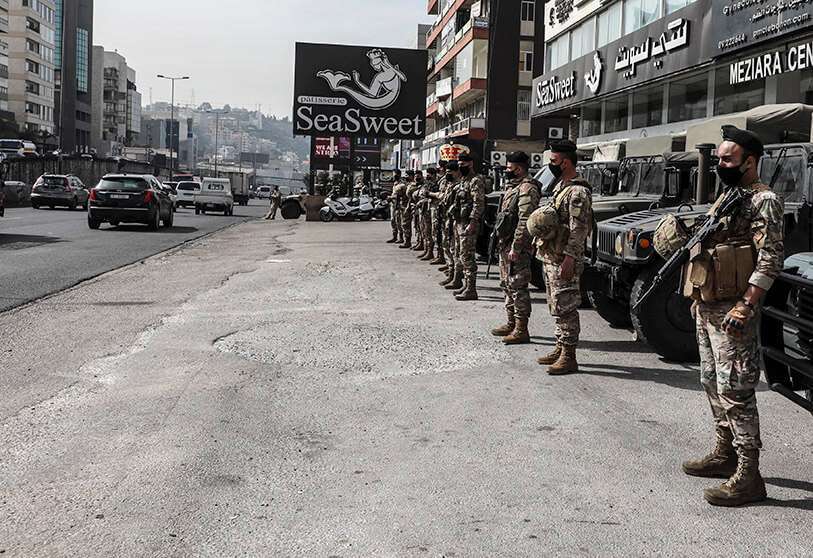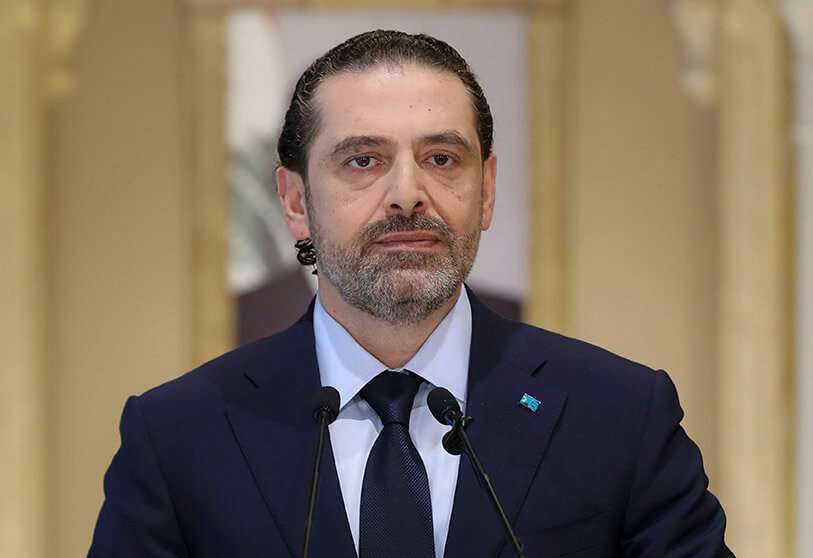Lebanese army lifts barricades after week of protests

The Lebanese army has begun clearing the barricades set up on the country's roads by protesters after eight days of protests. For the moment, the security forces have dissuaded a large part of the concentrations and have managed to reopen traffic in the main points of the country.
However, protesters remain partially blockaded on key roads in Lebanon. Obstruction has been carried out through the burning of tyres, rubbish bins and other barriers, from cars to rocks, in response to the desperate economic, social and political situation in the country.
Obstructed roads include those connecting to the capital, Beirut, as well as some roads in the northern city of Tripoli and the eastern region of the Bekaa valley. Up to three people have been killed in traffic accidents as a result of the blockages, two of them after colliding with a truck parked in the wrong direction, according to the authorities.

The incident prompted Lebanon's Maronite patriarch and chief Christian representative, Béchara Boutros Raï, to point out the potential dangers caused by roadblocks. During a sermon, the cleric showed his support for the protesters, however, he argued that the people on the road are not the cause of the country's problems and should not be punished.
"As a result of the tragic accidents and violations that have occurred, army units have begun this morning with the opening of closed roads," the army said on Twitter. The president, Michel Aoun, had previously asked the security forces to clear the roads after a meeting with his cabinet, but the commander of the armed forces warned that troops should not get caught up in the political stalemate.
Since last week, thousands of demonstrators have taken to the streets in Lebanon in protest at the difficult economic situation and the continuing political stalemate. The rallies began on 2 March in the wake of the local currency's plunge to a new low, with the dollar exchange rate reaching 10,500 Lebanese pounds after being pegged to the US currency for nearly three decades.

The rise in the exchange rate on the black market caused the Lebanese authorities to persecute illegal money changers, as well as a significant increase in the prices of consumer goods and a sharp drop in purchasing power, since the minimum wage in Lebanon is less than $ 70. The fall in the currency even brought severe delays in fuel imports and prolonged power outages, which in some areas reach twelve hours a day.
Wages have been maintained as inflation soared, resulting in large numbers of jobs being lost and poverty has affected nearly half of the population since the end of 2019. The COVID-19 crisis and the The collapse of the Lebanese health system has finally squandered the aspirations for recovery.
In the worst economic crisis since the civil war, with a currency crash of 85% for more than a year, the protesters have sought to restart the movement formed at the end of 2019 that demanded the removal of the entire Lebanese political class, indicated as corrupt and incompetent.

The commander of the Armed Forces, Joseph Aoun, asked the authorities to avoid any interference with those who demonstrate peacefully, for which he received the support of dozens of protesters. Within the Army, strong discontent is also brewing over the loss of wages due to the economic situation.
The Deputy of Parliament and former Lebanese Finance Minister, Ali Hassan Khalil, has announced the presentation of “an accelerated and repeated bill by paying one million Lebanese pounds a month to all officers and members of the military and military forces. security for a period of 6 months”, in order to maintain the morale of the soldiers and the cohesion of the Security Forces in a situation in which they seem key to the permanence of order.

The prime minister in charge Saad Hariri maintains his inability to form a new government after five months of disagreements with the president and leader of the Free Patriotic Movement, Michel Aoun. Major General Abbas Ibrahim, Director General of Security, and Béchara Boutros Raï himself continue with the mediation work.
Meanwhile, Hariri maintains his intention of forming a technocratic government made up of 18 specialists without political significance or affiliation. In this context, the acting Prime Minister Hasan Diab has shown his willingness to end his functions to facilitate the unblocking of the process.








